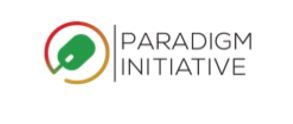Nigerian based Social enterprise Paradigm Initiative (PIN), known for building an ICT-enabled support system and advocating digital rights to improve livelihoods for under-served youth, is premiering its second high definition short film – FOCUS, a short film showcasing the state of digital rights and inclusion across Africa, at Film House Cinema, Lekki in the presence of diplomatic representatives, stakeholder, media and movie lovers.
PIN works to connect underserved young Africans with digital opportunities and ensures protection of their rights. Across Africa, they work to connect African youth with improved livelihoods through their digital inclusion and digital rights programmes.
Directed by Tolulope Ajayi, Focus is a short film drawn from PIN’s 2020 annual digital rights and inclusion report dubbed Londa. The report depicts the state of digital rights and inclusion in 20 African Countries.
PIN monitors the environment, documents violations, and reports on the state of digital rights and inclusion in Africa annually. Londa is a title of Zulu origin calling for action to protect or defend. The annual report is an advocacy tool for engaging with different stakeholders in the reported countries, serves as a yardstick for measuring performance, and provides critical recommendations for improving the digital space.
PIN Chief Operating Officer, Nnenna Paul- Ugochukwu said: “Focus is an exploratory way used by PIN to best impact the society through storytelling while spotlighting key issues plaguing the digital rights and inclusion ecosystems. With this short film we hope to inspire change and bring about radical thinking and adjustment.”
Through the digital rights and inclusion community, meaningful strides in some African Countries are being taken to bridge the digital divide. The report also acknowledges the positive developments in the environment.
The 2021 consolidated Londa edition analyses the state of digital rights and inclusion on the continent, examines violations and gaps, investigates the use and application of policy and legislation, highlights milestones, and proffers recommendations for improving the digital landscape in Africa.
This edition captures among other issues, the digital divide worsened by the COVID-19 pandemic and unearths infractions on different thematic areas such as privacy, access to information, and freedom of expression with the legislative and policy background well enunciated.


